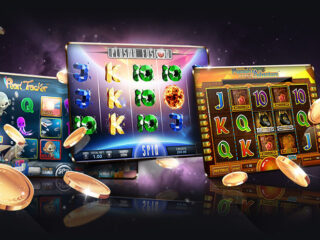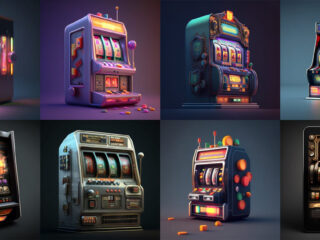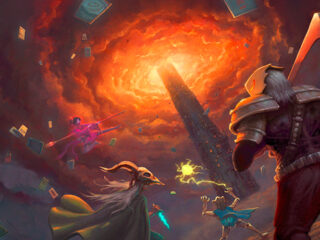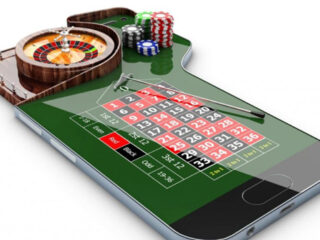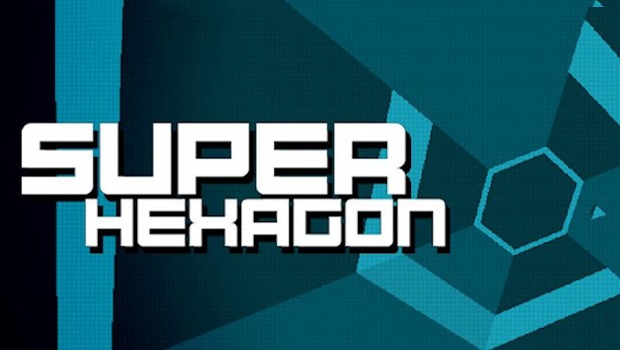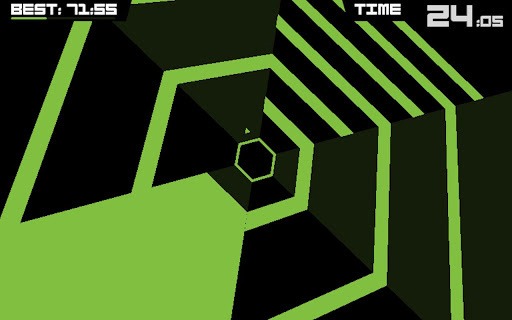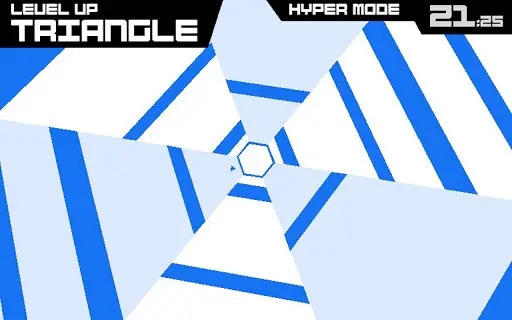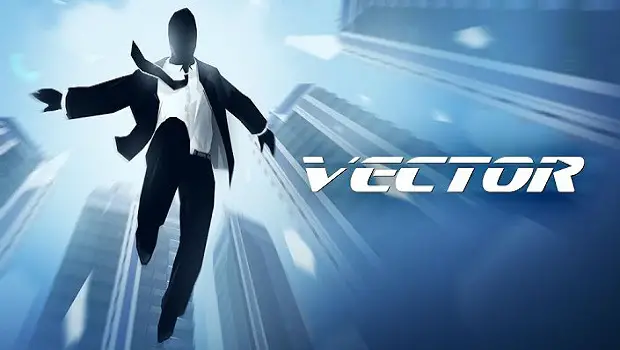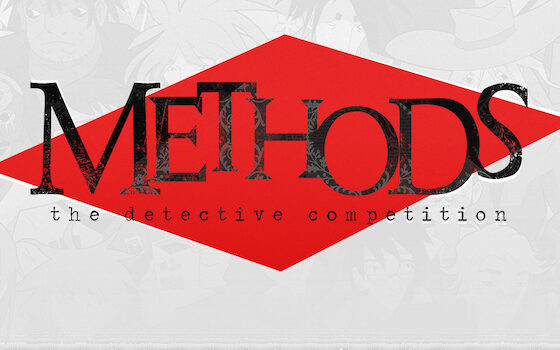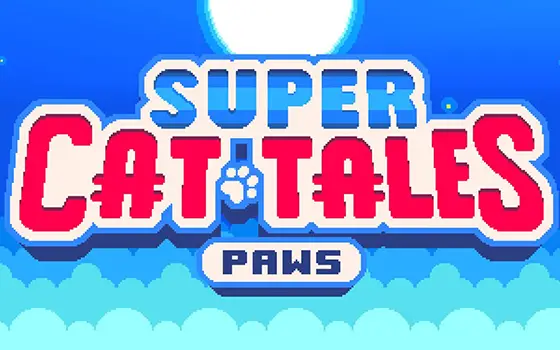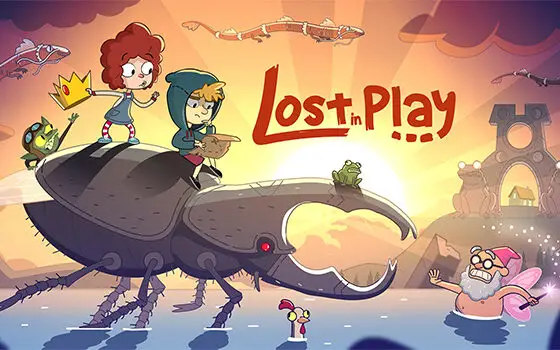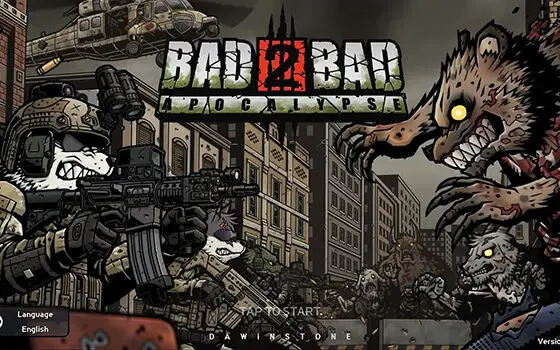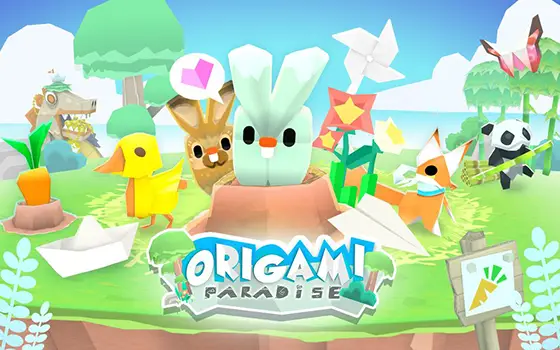Geometric crack.
Full disclosure: though I always do my best to finish a title completely before reviewing it, I’ve only beaten the first stage of Super Hexagon. And the first stage only lasts one minute. And I’ve been playing the game for four days.
Super Hexagon is a minimalist action game in which you navigate a tiny triangle through flashing neon obstacles of ever more complex geometric patterns. If the front of your triangle touches a wall, it’s game over and you restart the stage from the beginning. Your triangle stays in the center of the screen, rotating around a pulsing hexagon. The only controls at your disposal are left and right. Touching the left side of your screen moves you left and, well, the rest is self-explanatory.
There are six stages. The first three are called “Hexagon,” “Hexagoner,” and “Hexagonest” and the final three are “hyper” (meaning faster and more erratic) versions of the original three. Each hyper stage is unlocked by conquering the corresponding original stage. The first stage is considered “beaten” once your triangle survives for one minute (though the stage continues beyond that, if you’re up to the challenge). The same is true of each subsequent stage.
In other words, Super Hexagon consists of six, one-minute stages and only two control inputs. And it’s one of the most challenging, rewarding, and addictive games you’ll ever play.
The difficulty is listed under each stage with the very first being “hard” because, from the get-go, that’s what this game is: insanely, punishingly, unrelentingly hard. Although you’re only required to survive one minute per stage, you’re not likely to reach that minute for several hours. Each stage is technically divided into six “levels” called Point, Line, Triangle, Square, Pentagon, and Hexagon that you reach at regular time intervals. Line, for example, is reached at ten seconds. However, the first time you play the game, you probably won’t even last five. Again, if you get a game over, you start all the way from zero, so these aren’t checkpoints so much as they are markers.
Still, the incredible thing about Super Hexagon is that its addictive qualities manage to outweigh how frustrating it is. There’s something fantastically rewarding about simply knowing that you made it to another level and survived a whole thirty seconds. It inspires you because you know you’ve done it once, so you should be able to do it again. Also, since each time you begin a stage you’re almost definitely only going to play for a minute or less, there’s no frustration of sinking tons of time into a challenge only to fail near the end. Furthermore, retrying a stage is as easy as tapping the screen, so you don’t even get to have that moment where your mind thinks “just one more game.” Before you know it, your finger’s already made that decision.
Super Hexagon’s graphics consist of constantly spinning, throbbing, flashing, neon polygons accompanied by thumping chiptune techno. It’s like being trapped in a particularly angular rave. The game’s presentation is certainly not groundbreaking, but the minimalism of its audiovisual design perfectly complements its stripped-down gameplay. The only other in-game audio of note is a calm, yet firm female voice that informs you to “begin,” states what level you’ve reached, and makes sure you know when it’s “game over.” There’s definitely something to be said for the audio in tandem with the imagery drawing you in to produce a surreal, somewhat transcendent experience. The sound might, however, be distracting for some players. Happily, the game feels completely playable with it turned off as well.
The only real complaints to level at Super Hexagon are about what isn’t in it. As a gamer who generally seeks out narrative-driven experiences, I can’t exactly say I had any sort of deep emotional investment in this game and I can’t very well enjoy discussing specific moments with other players. But then that isn’t what this game is trying to do and is somewhat like arguing that Doom didn’t have enough parts where you put down your chainsaw and chatted with the demons. Furthermore, it’s not entirely accurate because there were times where I found myself able to complete a portion of a stage I previously could not or moments in which I narrowly missed colliding with a corner and these events were, in their own way, genuinely exhilarating. So, really, the only detraction I have is that staring at flashing and spinning for hours made me feel a bit ill.
Super Hexagon is simplistic, twitch gameplay, but it’s a sublime mastery of it. It may only be six stages long, but finishing those six stages is something you’ll work at for days. And, even if you complete them all, you may still be enticed to go back and beat your previous records. Super Hexagon distills action gaming down to the very essentials, resulting in an incredible example of how effective games can be at their most rudimentary and visceral. It’s wholly reactive, reflex-centric gameplay, almost akin to something as old-school as Pong. That is, if Pong were intensely difficult and set to techno.
Is it Hardcore?
Definition of...
Pure, unfiltered, action gaming.
